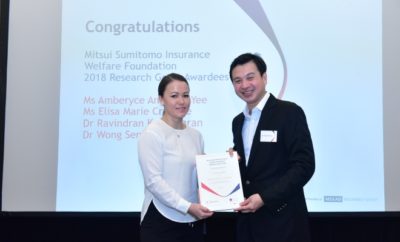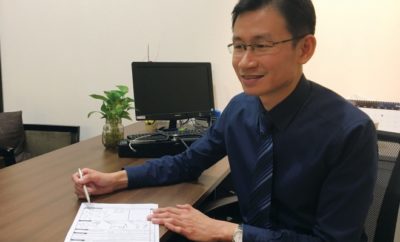
Health x Wellness
Is Singapore a Dementia Friendly Nation?
“Hogeweyk”, “Langley”, do they sound like mythical places where wizards live?
Far from the world of fantasy and whimsical fairy tales, Hogeweyk and Langley are dementia villages. I learned about them, as I embarked on my quest to understand and propose a model of community support for dementia.
Hogeweyk in reality is a nursing home in Netherlands, which was designed to resemble a dementia village. All the “residents” in Hogeweyk are people with dementia (PWD). Hogeweyk gives freedom to PWD to move around, visit cafes and shop at the grocery store with “Hogeweyk currency”.
Caregiving staff monitors the safety of PWDs in Hogeweyk and focuses on what PWDs can do, rather than what they can’t do. Every PWD lives in their own room in a large house with other PWD housemates. They can cook in the house and even attend social events, such as bingo nights and theatre events with their PWD housemates or neighbours.
Similar in concept, is Langely village in Canada. Langely has a bistro, a café, sensory gardens, farmyard with a vegetable garden, a salon and an art studio to provide space and amenities for meaningful activities and social interactions for PWDs.
While I do not expect a space-constrained island like Singapore to have dementia villages sprouting up everywhere, I hold a vision of Singapore one day becoming a dementia-friendly society. Every town in Singapore can be dementia-friendly communities, where residents offer help to PWDs and integrate them in the wider community. They do not stigmatise PWDs who live in their midst, but mingle with them instead.
A dementia-friendly community has residents who are trained to look out for PWDs and offer help, especially for PWDs who have lost their way. Businesses have dementia-trained stuff to serve PWDs patiently.
Apart from these initiatives, we can do more. Activities organised by the People’s Association and special interest groups in the community can integrate PWDs into their activities and events. For instance, photography enthusiasts can organise photography walks down the memory lane together with PWDs to capture familiar places and reminisce.
Retirees who are music enthusiast can band together and perform familiar songs for PWDs. Those with green fingers can also create gardens at every corner of the neighbourhood to stimulate the senses of PWDs with herbs and spices. Pet owners can even organise events where their pets interact with PWDs.
Singapore’s small size can be its strength. Despite the space constraint, a small nation means that we can “convert” ourselves more effectively into a dementia-friendly country. If we will embrace the vision of a dementia-friendly nation and make it a reality, we will certainly shine as bright, or even brighter than other nations with dementia villages.
Article contributed by Amberyce Ang, currently pursuing a PhD (Gerontology) with the Singapore University of Social Sciences, Professor Kalyani Mehta.
Founded in 1975 by Mitsui Sumitomo Insurance in Japan, Mitsui Sumitomo Insurance Welfare Foundation (MSIWF) advocates for budding and inter-disciplinary research focused on the growing ageing population and the rising concerns over traffic safety in Asia.
Amberyce received her research grant for her project focusing on community support for dementia care in Singapore. With inputs from caregivers and professionals caring for People with Dementia (PWD), the study aims to understand and propose recommendations on how the community can be effectively integrated to provide support for PWDs.
Photo credit: Mitsui Sumitomo Insurance Welfare Foundation (MSIWF)









